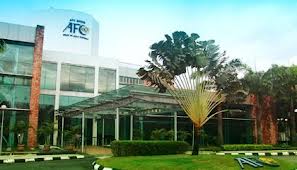By Andrew Warshaw
January 30 – Australia’s euphoria at reaching the Asian Cup final on home soil is being partly overshadowed by an apparent move by Gulf nations to have them thrown out of the Asian Football Confederation (AFC) and sent back to Oceania.
Australia meet South Korea on Saturday in the climax of a tournament that, by all accounts, has been superbly organised.
Australian officials point to that as a reminder of how well they put on major sports events but Asian officials say there is a groundswell of opinion that the country should no longer be part of the AFC which it joined in 2006.
The notoriously controversial AFC President, Sheikh Salman Bin Ibrahim Al-Khalifa, in an interview with United Arab Emirates newspaper Al-Ittihad, confirmed Gulf Arab federations and others were not comfortable having Australia among their ranks.
“Yes, it is true, there are indications that confirm that there is a desire among West Asian federations to remove Australia from the AFC,” he said. “But I also know that the Arabs are not the only ones that are not convinced with the value of Australia staying within the Asian football family.”
Critics of Australia’s move to Asia, a switch aimed at securing more competitive football and an easier route to the World Cup finals, say the benefits have been all one way. The Socceroos have reached the last two World Cup finals through Asian qualifying while the Arabian Gulf was not represented in Brazil or South Africa in 2010.
Asia has four automatic qualifying spots for the World Cup with a fifth going into an intercontinental playoff.
Aspirational Middle East nations have long felt hampered by Australia’s membership and Sheikh Salman, who took over the AFC in 2013, added: “The decision to include Australia was taken many years ago, before I became head.
“There are several Asian federations that see that it is necessary for Australia to leave the AFC, and for the AFC to cut all ties with Australia, but we can’t just base any decision on opinions. Any decision about Australia’s membership will have to come from the general assembly.”
But amid fierce media reaction in Australia, Salman quickly attempted to soften his untimely remarks by releasing a trouble-shooting statement saying Australia had earned its place in Asia by “working diligently” and contributing to the confederation at all levels. “The AFC Asian Cup Australia 2015 has been a wonderful showcase for Asian football,” the statement said.
“Australia is a full member of AFC like any other and the relationship with its fellow member associations can only grow stronger in the years ahead.”
Speaking to Fairfax Media, however, Australian football chief executive David Gallop said he was completely taken aback by Salman’s comments – picked up across the world.
“We were extremely surprised to hear of these press reports from west Asia,” he said.
“We are newcomers to AFC but our commitment to participate in competitions, membership of important AFC committees and general sharing of ideas and programmes increases every year. We celebrate the diversity of the Asian region and this tournament has shown our contribution can go beyond football to create and foster social and political bridges between key trading partners in the region.”
Contact the writer of this story at moc.l1745662593labto1745662593ofdlr1745662593owedi1745662593sni@w1745662593ahsra1745662593w.wer1745662593dna1745662593


